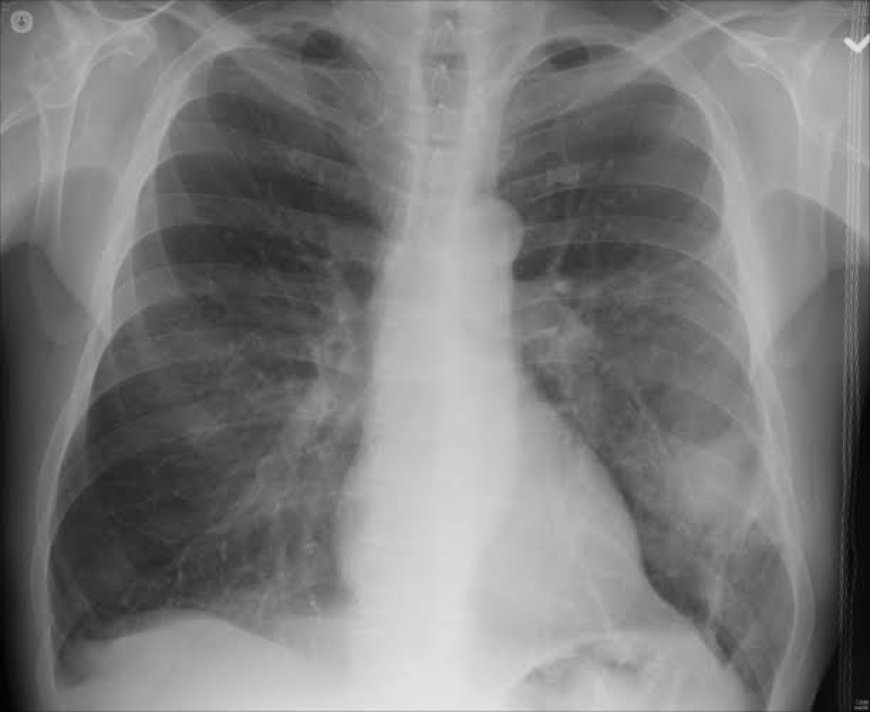Understanding Pneumonia, The Silent Lung Killer

Nairobi,
Wednesday, 19 February, 2025
McCreadie Andias
Pneumonia remains one of the most formidable respiratory diseases, quietly claiming lives across the globe. Often underestimated, this inflammatory lung condition can escalate rapidly from mild symptoms to life-threatening complications, particularly among the elderly, young children, and individuals with weakened immune systems.
But what exactly is pneumonia, and why does it continue to pose a significant public health challenge despite medical advancements?
Pneumonia is an infection that inflames the air sacs (alveoli) in one or both lungs. These air sacs may fill with fluid or pus, leading to symptoms such as cough, fever, chills, and difficulty breathing. The condition can be caused by various pathogens, including bacteria, viruses, and fungi.
Types of Pneumonia:
Bacterial Pneumonia – The most common culprit is Streptococcus pneumoniae, though Haemophilus influenzae and Mycoplasma pneumoniae also contribute. Bacterial pneumonia often develops suddenly, with high fever, productive cough, and chest pain.
Viral Pneumonia – Caused by viruses such as influenza, respiratory syncytial virus (RSV), and coronaviruses. Symptoms tend to be milder initially but can progress rapidly, especially in individuals with compromised immunity.
Fungal Pneumonia – Rare but potentially severe, fungal pneumonia is often seen in immunocompromised patients, such as those undergoing chemotherapy or living with HIV/AIDS.
Aspiration Pneumonia – Occurs when food, liquid, or vomit is inhaled into the lungs, leading to an inflammatory response and infection.
How Pneumonia Affects the Body
According to Dr. Eleanor Hughes, a pulmonary specialist at Johns Hopkins Hospital, "Pneumonia disrupts the oxygenation process in the lungs. When alveoli are filled with pus or fluid, oxygen exchange is significantly impaired, leading to hypoxia and increased stress on the heart and other organs." (Sourced interview)
Patients with severe pneumonia may experience systemic inflammation, septic shock, or acute respiratory distress syndrome (ARDS), a condition where the lungs can no longer provide adequate oxygen to the body. This is particularly dangerous in patients with pre-existing conditions such as chronic obstructive pulmonary disease (COPD), asthma, or cardiovascular disease.
Who is Most at Risk?
While pneumonia can affect anyone, certain populations are more vulnerable:
Infants and young children – Their developing immune systems make them more susceptible.
Elderly individuals (65+) – Aging weakens immune defenses and respiratory function.
People with chronic illnesses – Conditions like diabetes, kidney disease, and COPD increase susceptibility.
Smokers and alcoholics – Smoking damages lung tissue, while excessive alcohol consumption weakens immune function.
Hospitalized patients – Being on ventilators or prolonged hospital stays increase the risk of nosocomial (hospital-acquired) pneumonia.
Early detection is key to effective treatment. Physicians rely on a combination of clinical evaluation, chest X-rays, blood tests, and sputum cultures to diagnose pneumonia accurately.
Treatment Approaches:
Antibiotics – First-line treatment for bacterial pneumonia, with drugs like amoxicillin, azithromycin, or levofloxacin.
Antivirals – Used in specific cases, such as influenza-induced pneumonia.
Antifungals – Necessary for fungal pneumonia, particularly in immunocompromised individuals.
Supportive Care – Includes oxygen therapy, hydration, fever management, and respiratory therapy.
"The key is personalized treatment," says Dr. Samuel Patel, an infectious disease expert. "Not all pneumonias require aggressive antibiotic therapy, and unnecessary use contributes to antibiotic resistance. Proper identification of the pathogen is crucial." (Sourced interview)
Preventing pneumonia is possible through a combination of vaccination, lifestyle modifications, and infection control measures.
Vaccination:
Pneumococcal vaccines (PCV13, PPSV23) are recommended for children, older adults, and individuals with high-risk conditions.
Influenza vaccines – Help prevent flu-related pneumonia.
COVID-19 vaccines – Reduce the risk of severe viral pneumonia.
Healthy Habits:
Regular handwashing
Avoiding smoking and excessive alcohol consumption
Maintaining a balanced diet and exercise routine
Seeking prompt medical attention for respiratory infections
The Global Burden and Future Outlook
Despite medical advancements, pneumonia remains a leading cause of morbidity and mortality worldwide. According to the World Health Organization (WHO), pneumonia accounts for over 2.5 million deaths annually, including 700,000 children under five.
Emerging research focuses on innovative treatments such as monoclonal antibodies, advanced immunotherapies, and improved vaccine formulations. "We are hopeful that new targeted therapies will revolutionize pneumonia treatment, especially for antibiotic-resistant strains," remarks Dr. Lisa Rodriguez, a researcher in respiratory infections. (Sourced interview)
What's Your Reaction?


































































































































































































































































































